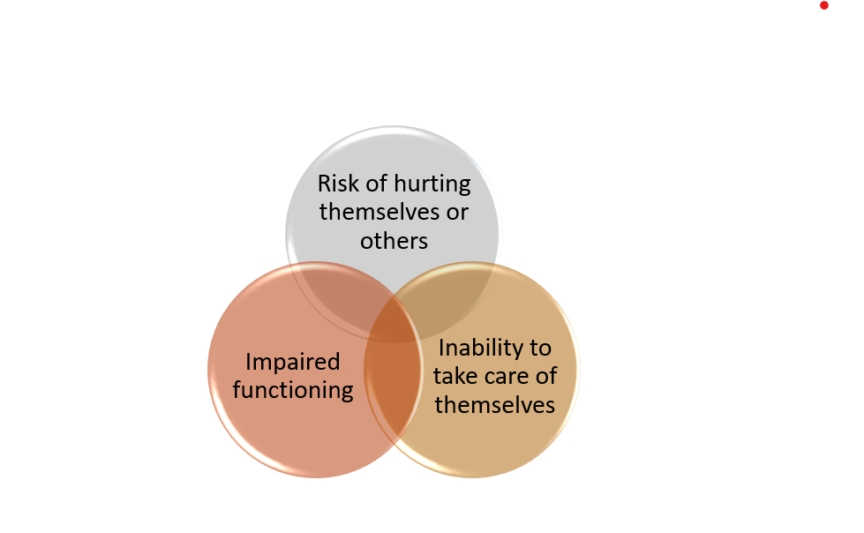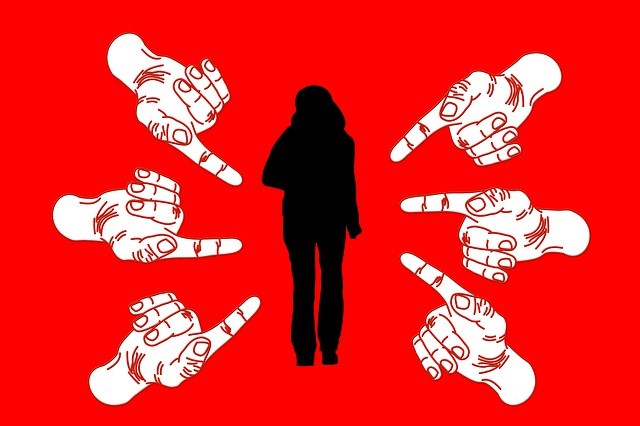
WHAT IS A MENTAL HEALTH CRISIS?
A mental health crisis is a short-term incident involving acute mental distress that occurs when a person’s behavior places them at risk of hurting themselves or others and/or keeps them from taking care of themselves and functioning effectively in the community.
Mental health crises are considered emergencies and should be treated as such, meaning that they should be addressed immediately and effectively.
Often mental health crises happen when someone is not in treatment, but they can also occur when the person is actively receiving mental health care. Mental illness is unpredictable by nature. This is why it is particularly important to know the warning signs of a mental health crisis and be aware common stressors than may act as triggers.
Stressors that could trigger a mental health crisis
Some stressors that can contribute to a mental health crisis include:
- Home or environmental stressors: break-ups, divorce, losses (death, divorce, losing a job, etc.), relocation, conflicts with others, trauma and exposure to violence.
- School or work stressors: feeling singled out by co-workers or peers, real or perceived discrimination, failing grades or losing a job.
- Other stressors: being in a crowd, experiencing natural disasters, pending court dates, using drugs or alcohol, starting a new psychiatric medication or a different dose, treatment stops working, stopping medication or not taking it as prescribed.

Warning signs of a mental health crisis
The first step in managing a mental health crisis is recognizing it. Familiarize yourself with the following warning signs:
- Inability to perform daily tasks such as showering, brushing teeth, eating, changing clothes, etc.
- Rapid mood swings, that go from mania (e.g. increased energy, inability to stay still, pacing) to depression or vice versa.
- Increased agitation, recklessness, making verbal threats, destroying property, out of control or violent behavior.
- Abusive behavior to self (e.g. self-cutting) or others.
- Psychosis: the person loses touch with reality, doesn’t recognize family or friends; seems confused, has strange ideas or thinks they’re someone they’re not. The person may also be unable to understand what others say, hear voices that no one else does, see or sense things that are not there.
- Paranoia: having unwarranted and irrational suspiciousness and mistrust of people, groups or organizations, believing them to be conspiring to cause them harm. A person suffering from paranoia experiences intense anxiety and fear revolving around unrealistic threats.
If you notice the aforementioned symptoms in yourself or another person, don’t hesitate to seek guidance from a mental health professional who can recommend a proper course of action.
6 Things You Should Never Do in a Mental Health Crisis
- Wait for things to get better on their own. Without treatment, symptoms may worsen, and permanent harm may result (e.g. suicide).
- Deny, ignore or minimize the symptoms.
- Try natural remedies instead of consulting a psychiatrist or qualified mental health professional. Remember, mental disorders are real medical conditions that can be treated successfully.
- Try to handle the situation on your own. You will need support.
- Promise secrecy. This is different than being discrete, when you promise not to tell anyone about concerning mental health symptoms you could be doing more harm than good and contribute to the person’s isolation. Instead, you can tell the person you care too much for them to keep a secret that can only hurt them. “You need help and I’m here to help you get it” can be a good response.
- Make comments such as:” it’s all in your head”, “just snap out of it”, or “you’ll be fine, don’t worry”.
